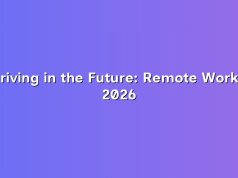Even when you have undergone more interviews than you can count, job interviewing never gets any easier. With each job interview, you are trying to satisfy new individuals, marketing on yourself and your abilities, and frequently getting battered about what you know or don’t know. And the pressure to remain upbeat and also enthusiastic through everything. This can be a challenge; when you’re interviewing for your dream job.
Think Aloud on Analytical Questions
Some interviews consist of tough analytical inquiries. Whether you’re addressing a precise number or a rough approximation, it is essential to think aloud about your process. Don’t simply provide an answer; show how you got there.
This is a great way to reveal your communication skills alongside your analytical ones. And also, if you make a mistake, it’s much easier to pinpoint where you went wrong and fix it.
Ask Questions That Kill Two Birds With One Stone
At the end of your interview, it’ll be your chance to ask a few questions to the interviewer. This is a good opportunity to kill two birds with one stone– that is, asking an authentic question while communicating something new regarding yourself. But, unfortunately, most people do the initial part and ditch the last chance to impress the job interviewer.
This works beautifully. Suppose you have not the chance during the spontaneity of the interview to bring up an important achievement in your journey.
Grow A Backbone & Ask This Final Question
This one takes courage, but it works consistently and makes a difference.
Before your meeting finishes, ask this last inquiry: “Have I stated anything in this meeting or provided you any reason to doubt that I am a suitable candidate for the role?”
It’s bold; however, if spoken honestly, it shows genuine desire and self-confidence.
Email a Personalized Thank You Note
Thank your recruiter within 24 hours of completing. It not only reveals your gratitude, but it also fights recency bias if you interviewed too early. In addition, it keeps the doors for discussion open even if you don’t get the job. Sometimes, employers get back on the very same email string months later, discussing new job potentialities.
The future of work means differently to each one of us: some see it as more technology and less human, some expect a more humanized space and some others imagine it to be a no-workplace world. In our journey to unwrap FutureofWork, Work2.org invites leaders from various industries to help our global community to understand what the posterity holds for workers, leaders and organizations. While our team is busy at bringing this fresh ideas directly to you, we would appreciate our community help in making it possible. If you like what you’ve read, we would appreciate if you could spread the word within your circles and let us know if anything you want us to bring into this #FutureOfWork conversation.



























